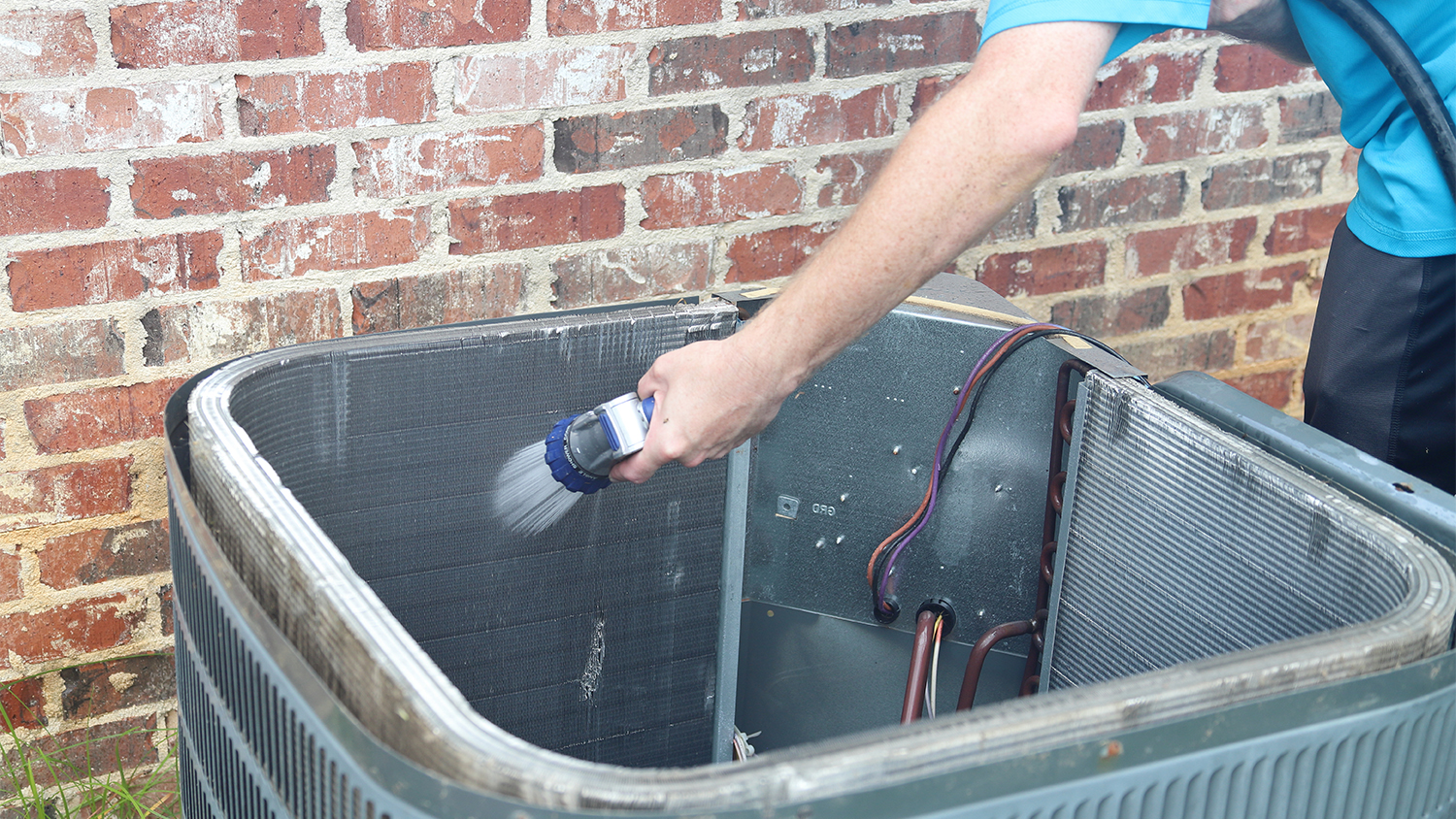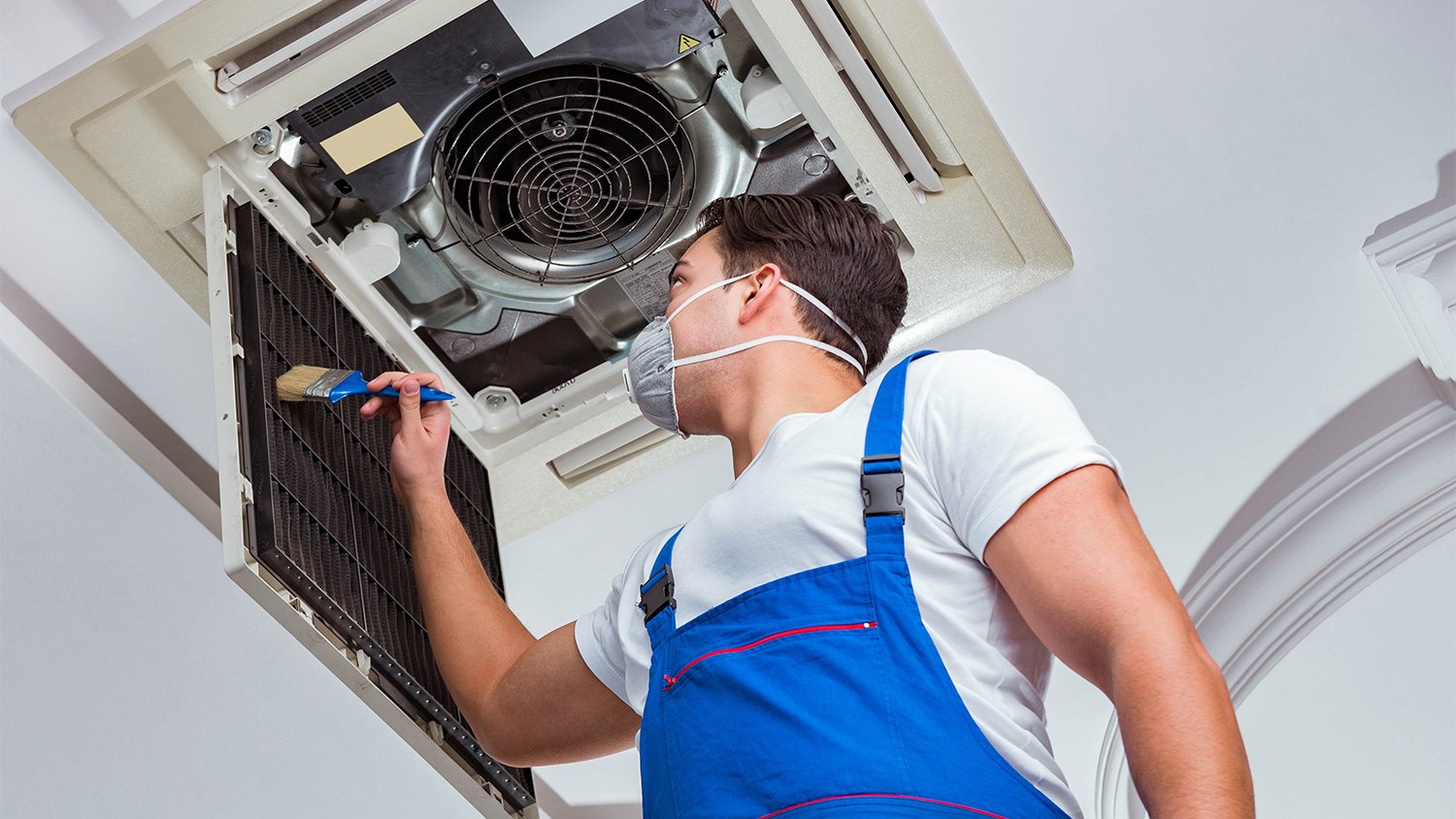
Average costs of HVAC inspections vary based on house size, location, and type of HVAC system. Follow our easy guide to gauge your home’s HVAC inspection cost.
When HVAC problems don't simply blow over, be sure to avoid these all-to-common repair mistakes


The most important appliances in our homes have a sneaky talent for breaking down or acting up when we need them most. If your AC or furnace starts to misbehave, you may feel inspired to pull out your toolbox and take on the problem yourself. But it's essential that you call a licensed HVAC expert instead of handling major repairs yourself.
In between expert visits, be sure to avoid common mistakes when running your HVAC. Caring for these crucial systems comes down to knowing when to take a look yourself and when to leave repairs to the pros. If you're tempted to open up your vents, AC, furnace, heat pump, or thermostat, pump the brakes—the following common HVAC repair mistakes are potentially dangerous and costly.
While you should leave most HVAC repairs to the pros, you can—and should be—the eyes and ears for catching issues before they get worse. Common signs of HVAC trouble include:
Sudden temperatures changes in your home
Strange smells coming from vents or radiators
New sounds when the system is running
High heating or electric bills
Unresponsive thermostat
Pooled water around your ducts, furnace, or AC unit
Many homeowners commit this repair mistake by failing to act on these warning signs as soon as they detect it. If you wait too long to call a pro, the issue will likely get worse.
As a homeowner, troubleshooting is the best way to help your local HVAC team determine the problem. When you call your local AC or heating experts, they may advise you to check a few common issues before making an appointment. For example, your system may not pop on if you've lost power to your home or if you have a tripped breaker.
Some indoor and outdoor AC units also have individual power switches for safety purposes. Your HVAC team can walk you through how to safely investigate the power sources if this is the case.
Lastly, there's also a chance that your thermostat needs a reset or a new fuse, or perhaps a newly purchased thermostat doesn't mesh with your old equipment. To avoid hiring a repair team to fix a simple issue that you could’ve resolved yourself, run through basic troubleshooting steps before calling in the big guns.
Ah, the almighty power of duct tape. When you detect a leak in your HVAC vents, AC, or furnace, you may feel inspired to reach for the mythical fix-all tool. But it is not safe to use duct tape—or any other improvised materials for that matter—to patch up something as powerful as your HVAC system.
If you detect a leak—from leaked air from your ducts to water from your furnace—call an HVAC professional immediately.

Outdoor air conditioner coils experience a buildup of grime, dust, and fur just as much as the ones on your refrigerator. Cleaning your HVAC condenser coils is a delicate process, which you should approach with care.
To avoid complications, depend on heating and cooling experts for coiling cleanings. The experts understand how to delicately remove these coils during routine maintenance and dissolve grime with a specialized detergent. Taking the DIY approach can break down the coils over time, causing long-term damage to your system.
An annual AC tune-up costs between $70 and $100, and your specialist will take care of dirty coils during their visit if necessary.

Allergy sufferers are all too aware of the importance of keeping a dust and pollen-free home. If you're hoping to save a bit of money on repair costs, it's very tempting to grab the vacuum and attempt to clean your ductwork yourself. However, we recommend sticking to only cleaning the registers on your own to avoid damage.
Leave cleaning ductwork to professionals with specialized equipment to move through your whole system. You also may not need this service as often as you think—typically only every three to five years.
According to the Environmental Protection Agency, handling any type of refrigerant is legally a job for a licensed professional. There's a common misconception that an AC unit uses refrigerant over time and will work better if you simply add more. But if your machine is suddenly running low on refrigerant, it’s likely the warning sign of a leak. Always call a professional AC expert if you detect low refrigerant.
As the saying often goes, you get what you pay for. “Bargain” HVAC companies love to bombard customers with low-ball offers below the market rate. But if the price seems too good to be true, the company may be making up for lost money in lower-quality HVAC parts.
Rushed installation or poor materials means that you'll need more HVAC repairs or even a full replacement in less time. To avoid HVAC scams, always research the company thoroughly before signing a contract or allowing a new repair person into your home. Asking your HVAC installer questions, like if you can see their license, will help weed out any people who aren’t right for the job.
From average costs to expert advice, get all the answers you need to get your job done.

Average costs of HVAC inspections vary based on house size, location, and type of HVAC system. Follow our easy guide to gauge your home’s HVAC inspection cost.

What you’ll pay for furnace repairs depends on many factors, including what parts are malfunctioning, where you live, and even the time of day. Here’s a breakdown of what can go wrong with your furnace and the cost to fix those issues.

Exposed ductwork can be a smart choice even beyond aesthetics. Fortunately, exposed ductwork costs are relatively low, and easy access keeps repair costs to a minimum.

Not sure which type of furnace humidifier is best for your home? We’ve broken down four different options, explaining how they work and their benefits.

Do you have a clogged AC drain line? We dig into the reasons behind those pesky blockages and how to clear them for optimal AC performance.

Thinking about installing a heat pump in your home? Learn about the different types of heat pumps and the options you can choose from in this guide.